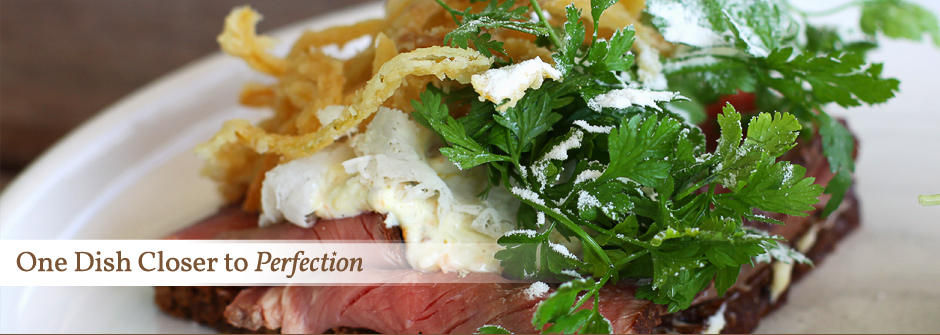Pan-fried plaice fillets with chunky salsa verde, puy lentils and garlic croutons
 Sunday, October 31, 2010 at 10:12AM
Sunday, October 31, 2010 at 10:12AM I tried out this dish for the first time the other night and it was fan-f**king-tastic. Wow! I would say this is the closest I have got to perfection for a while.
I thought it would be nice to follow up the salsa verde post with a dish that uses it, albeit not quite in its pure form. I would like to take full credit for the recipe, but I have a vague recollection of eating something like it at The Giaconda Dining Room last year. I was plied with several glasses of albarino (albarino, albarino) at the time, hence the hazy memory, but there are a few details which I remember clearly; white fish, lots of herbs, capers and croutons. The croutons were the key to the dish, giving it a wonderfully dynamic texture and providing a perfect contrast to the delicate flesh of the fish.
I have used this as the basic premise and taken it a step further by replacing the simple mix of herbs and capers with a roughly chopped salsa verde and I think it works, well, fan-f**king-tastically. The lentils I added for substance and because they go well with parsley. I found their earthiness well balanced with the tart, citrusy dressing.
